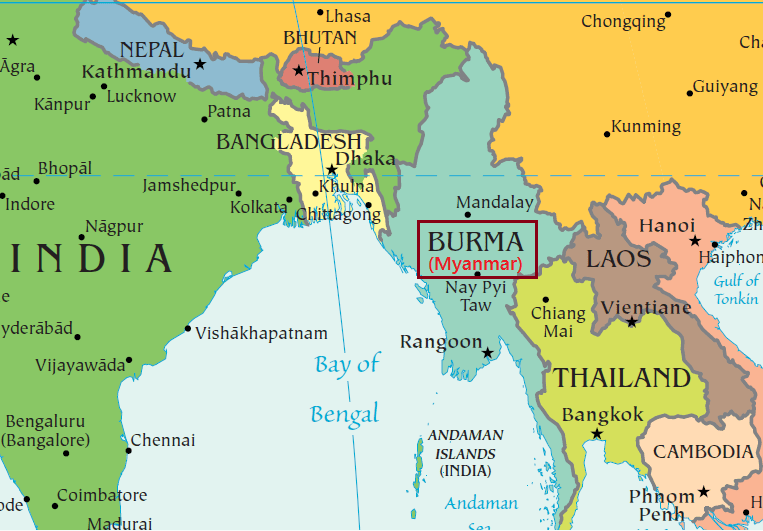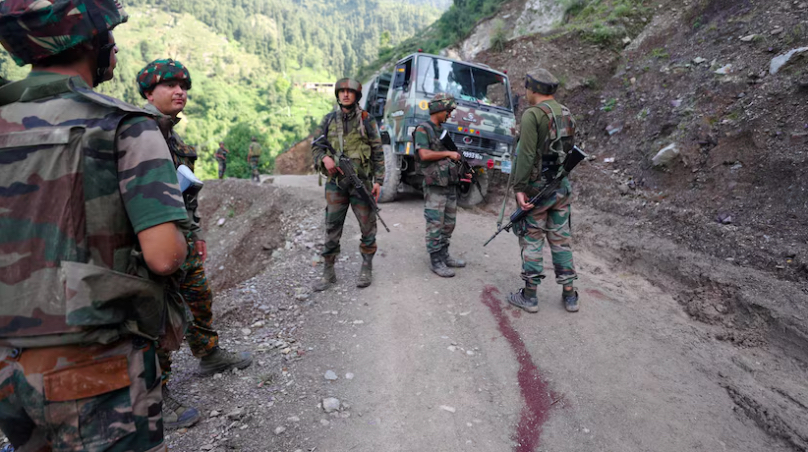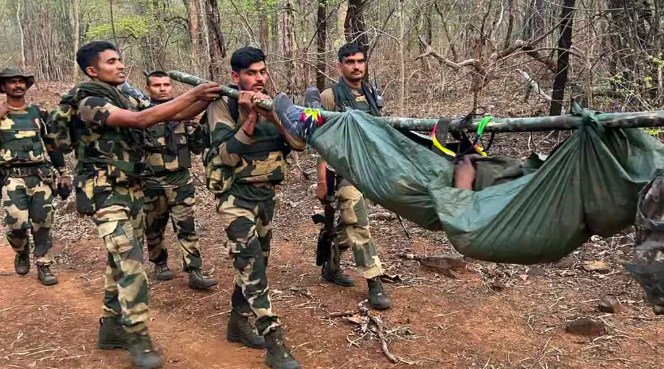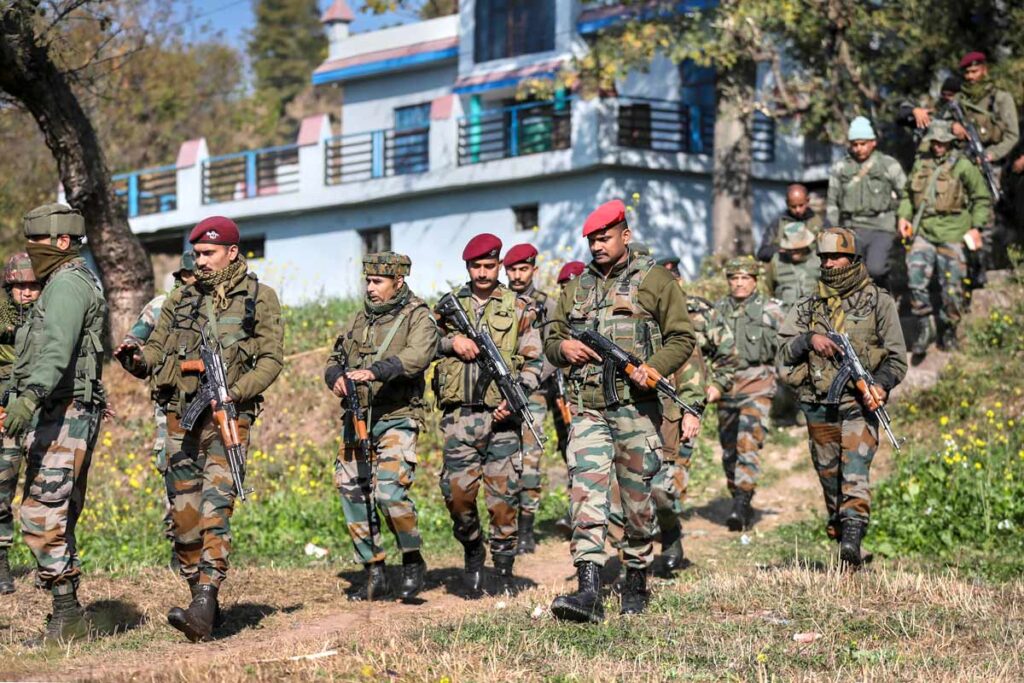MANTRAYA ANALYSIS#70: 19 SEPTEMBER 2023
BIBHU PRASAD ROUTRAY
Abstract
Since the mid-1990s, India’s ‘pragmatic’ policy in Myanmar has supported de facto governments in that country to further New Delhi’s strategic objectives. Without much concern for the cause of democracy, India has done business with the dominant Myanmar military. Even when the NLD was in power between 2015 and 2021, military diplomacy remained a key component of New Delhi’s Myanmar policy. Not surprisingly, therefore, even after the 2021 coup that returned the Tatmadaw to centre stage, New Delhi did not blink before choosing to stick to its ‘pragmatic’ policy. However, whether the policy has fulfilled its objectives in that country is questionable.

Meandering in Myanmar
In a ‘successful secretive operation’ in August 2023, the Assam Rifles (AR) facilitated the return of over 400 Meitei civilians from Myanmar. [1] These people had fled Manipur across the India-Myanmar border to escape the ethnic violence between the Meiteis and the Kukis in the state that started on 3 May and had taken refuge in a monastery in Tamu. The AR Public Relations Officer (PRO) said that civil society groups on both sides of the border were involved in the operation.[2] Although no details regarding the involvement of the Myanmar authorities were provided, it is unimaginable that the relocation of the civilians in multiple batches could have occurred without the cooperation of the former. This incident can be cited as an example of India’s ability to elicit seamless and timely cooperation from Myanmar.
Such positive instances of cooperation, however, coexist with New Delhi’s growing frustration with the delays and lack of progress in its decades-old connectivity and infrastructure projects in Myanmar. On 16 July, during a meeting with his Myanmar counterpart, Than Swe, India’s external affairs minister, Subrahmanyam Jaishankar, flagged concerns about the movement of armed militants from Myanmar into Manipur. He told Tan Swe that Myanmar must avoid actions that can aggravate the situation along the ‘seriously disturbed’ Indo-Myanmar border areas. He urged stronger cooperation between both countries to address human and drug trafficking.[3] On 7 August, Minister Jaishankar again spoke on the difficulties posed by Myanmar’s tardiness in implementing the connectivity projects. While affirming that India is looking to conclude the coastal shipping agreement with Myanmar this year, he said that implementing the ‘Myanmar Trilateral highway is a big challenge due to the law-and-order situation.’[4]
Support for Democracy?
On multiple occasions, India has expressed its concerns about the ‘humanitarian situation’ in Myanmar and has said that it supports the ‘democratic transition’ in that country. Minister Jaishankar has also said that India ‘will coordinate its policy with ASEAN in this regard’.[5] While these utterances at the outset are politically correct, the ground situation points to quite a different reality.
There is no ‘democratic transition’ happening in Myanmar. Ever since the February 2021 coup orchestrated by the military, the country has been under an emergency. A bloody civil war is continuing, between the military and the pro-democracy activists headed by the parallel National Unity Government (NUG), that has claimed over 4,000 civilians’ lives. Neither party in conflict is close to a decisive victory. The military has been attempting to hold an election to install a pro-military government. It has been unable to do so given the wide-scale disturbances and military confrontation that has widened considerably in the past months.[6] The country’s majority party, the National League for Democracy (NLD), has been dissolved by the military along with several other opposition parties. The United States has categorically said that a fair election is an impossibility under the military junta.[7] The UN too has said that any election held by the military would fuel violence in the country.[8]
India, to the contrary, has worked with the Myanmar military to make the elections happen. It has supplied e-voting machines to the country and has trained the officials. The support for the ‘democratic transition’ by India therefore essentially translates into support for a process that has only one objective: formally installing the military as an ostensible dejure political force in that country. New Delhi is one of the few countries that has not yet officially condemned Myanmar’s military generals. Instead, both countries have shared high-level contacts. Indian military chiefs, defence secretary, and the foreign secretary have visited Myanmar. New Delhi has hosted Myanmar’s military officials and bureaucrats on several occasions.
Unlike other countries such as the US, which has been coordinating with NUG to provide non-lethal assistance, the military in Myanmar remains for India the sole point of contact. New Delhi has made no confirmed attempts to meet imprisoned NLD leader, Aung San Su Kyi, nor has it made any attempt to establish contacts with NUG. To the contrary, New Delhi has emerged as a significant arms supplier in the Myanmar military’s ruthless assault upon the opposition. This has placed it in unsavory company, with the likes of China and Russia, which also stand by the illicit military regime. According to a UN report, India has supplied $51 million (₹422 crore) worth of arms and related materials to the Myanmar military since the coup in February 2021.[9] Appeals by NUG and pro-democracy groups for cessation of contacts with the military and a halt to weapons supply have been ignored. Further, India has chosen to abstain during voting in the UN resolutions, even those which demanded an end to violence in Myanmar and urged the country’s military rulers to release all political prisoners, including ousted leader Aung San Suu Kyi.
The furthest New Delhi has gone in critiquing the military junta has been to issue a joint statement with the US, during Prime Minister Narendra Modi’s state visit in June 2023, expressing ‘deep concern about the deteriorating situation in Myanmar’, and calling ‘for the release of all those arbitrarily detained, the establishment of constructive dialogue, and the transition of Myanmar toward an inclusive federal democratic system.’[10] This, however, didn’t go down well with the Myanmar military, which ‘sought understanding, support and constructive cooperation from the international community.’[11] Since then, New Delhi has chosen to be silent on the state of violence in the country and the military’s obstinate approach towards the opposition, which it describes as ‘terrorism.’
Pragmatism or Value-neutrality
One of the reasons behind such a policy is New Delhi’s apparent belief that the military in Myanmar will be in power for the foreseeable future. Therefore, it is the military and not NUG and pro-democracy activists that can fulfil India’s strategic objectives in that country, such as dealing with northeast insurgencies and implementing the Act East policy. Although largely unstated, this emerges in the government’s periodic statements. For instance, the Press Information Bureau’s release on 1 July 2023 on India’s Defence Secretary’s official visit to Myanmar included the following: ‘India shares an approximately 1,700-km-long border with Myanmar. Any developments in that country have a direct impact on India’s bordering regions. Peace & stability in Myanmar and the well-being of its people, therefore, remain of utmost importance to India.’[12] In December 2022, explaining its abstention from voting on the UNSC resolution sponsored by the United Kingdom, India’s Permanent Representative to the UN said New Delhi believes that the complex situation in Myanmar calls for an approach of ’quiet and patient diplomacy.’ ‘Under the current circumstances, we are of the considered view that a UN Security Council resolution may entrench the parties in their inflexible positions rather than encourage them to pursue an inclusive political dialogue,’ she added.[13]
However, it is unclear if New Delhi has used any of its multiple interactions with Myanmar’s military officials to push for a political dialogue-based approach to end the conflict. To the contrary, its military diplomacy, continued arms supply to the military, and indifference to the human suffering in the country highlights that it is hardly an impartial player in the ongoing conflict. It is clearly hedging its bets on the military’s prowess to fulfil its strategic objectives, though these must themselves be questioned as a case of a quest for momentary tactical advantage masquerading as strategy.
Were present policy viable, India’s support for the dictatorship should, in the past two-and-a-half years, transformed New Delhi into a significant strategic player, with leverage in Myanmar, thereby allowing it to influence the military’s actions. That has not happened. Worse, Minister Jaishankar’s recent statements indicate that Myanmar’s military has failed to fulfil any of New Delhi’s objectives at even the quotidian level. The junta’s declining control over Myanmar’s territory severely undermines its ability to deliver on India’s concerns regarding human trafficking and drug smuggling. Its preoccupation with operations to weaken and eventually crush the pro-democracy activists limits its ability to deal with the insurgencies operating in India’s northeast. Necessarily, joint operations by the militaries of the two countries or solo surgical strikes by the Indian military have become a thing of the past. Combined with developments such as the recent upheaval in Manipur, this unveils the specter of a resurgence of regional insurgency, uncontrolled drug smuggling, and stepped-up human trafficking.
Strong Chinese presence in Myanmar has been underlined as an additional factor behind India’s current policy towards the military junta. Any open identification with the West, which has imposed a series of sanctions on the Junta leaders, could – goes the apparent logic – push the latter away from India. This scenario would be detrimental to India’s interests. While an argument can be made in this direction, in reality, India’s position in Myanmar pales compared to China. Beijing has a range of concerns and strategic objectives in Myanmar and has remained firmly entrenched there. This reality is not favourable to India.
Time for a Policy Shift
Democracies must fulfil certain obligations, even while seeking to protect their strategic interests. Among these are promoting democratic values in other countries and pushing against any democratic backsliding. India’s foreign policy in Myanmar is at odds with its democratic verbiage. The problem for New Delhi, though, is that even its ‘pragmatic’ and ‘value neutral’ foreign policy has failed to deliver. As noted above, the present posture is linked to an assessment that the dictatorship will remain in power. Yet this ignores the reality that the military does not exercise control over the entire country, thus placing New Delhi in a position for strategic loss, both tangibly and intangibly. Even as it fails to gain assistance on the ground, it sullies its democratic credentials by openly advancing duplicity as policy.
Actually, it is restoration of democracy and respect for the popular verdict in favour of the NLD which will create conditions for fulfillment of India’s strategic objectives. This can only happen when the military engages with NUG and paves the way for it to re-assume the power it democratically won and held. It is imperative, therefore, that India focus its influence to push the Myanmar military towards a process of dialogue with the pro-democracy forces. Blindly supporting the military and its plans to hold duplicitous elections will only prolong the civil war situation.
END NOTES
[1] The group included about 4/5 people of Nepali community. The rest were Meiteis.
[2] “Assam Rifles Brings Over 400 People, Mostly Meiteis, Back to Manipur From Myanmar”, The Wire, 21 August 2023, https://thewire.in/security/assam-rifles-brings-over-400-people-mostly-meiteis-back-to-manipur-from-myanmar.
[3] “EAM Jaishankar Meets Myanmar Counterpart In Bangkok, Border Disturbance Discussed”, Outlook, 17 July 2023, https://www.outlookindia.com/international/eam-jaishankar-meets-myanmar-counterpart-in-bangkok-border-disturbance-discussed-news-303489.
[4] “Rail link between Bhutan and Assam on course, Myanmar Trilateral highway a big challenge: Dr S Jaishankar”, Business Today, 7 August 2023, https://www.businesstoday.in/latest/politics/story/rail-link-between-bhutan-and-assam-on-course-myanmar-trilateral-highway-a-big-challenge-dr-s-jaishankar-393075-2023-08-07.
[5] Ibid.
[6] “Myanmar military extends emergency, postpones election”, Al Jazeera, 1 August 2023, https://www.aljazeera.com/news/2023/8/1/myanmar-military-extends-emergency-postpones-election.
[7] Khin Soe Win, “Q&A: US Sees No Chance of Fair Election Under Myanmar Junta”, Voice of America, 20 January 2023, https://www.voanews.com/a/q-a-us-sees-no-chance-of-fair-election-under-myanmar-junta-/6927384.html.
[8] “UN says Myanmar junta elections will fuel violence”, Times of India, 31 January 2023, https://timesofindia.indiatimes.com/world/rest-of-world/un-says-myanmar-junta-elections-will-fuel-violence/articleshow/97482093.cms.
[9] “‘Death trade’. India supplied ₹422 crore worth arms to Myanmar junta: UN”, Hindu Business Line, 19 May 2023, https://www.thehindubusinessline.com/news/national/india-supplied-422-crore-worth-arms-to-myanmar-junta-un/article66869114.ece.
[10] The White House, “Joint Statement from the United States and India”, 22 June 2023, https://www.whitehouse.gov/briefing-room/statements-releases/2023/06/22/joint-statement-from-the-united-states-and-india/.
[11] “Why Myanmar is rattled by India-US joint statement”, Times of India, 29 June 2023, https://timesofindia.indiatimes.com/india/why-myanmar-is-rattled-by-india-us-joint-statement/articleshow/101354418.cms?
[12] Press Information Bureau, Government of India, “Defence Secretary visits Myanmar; Discusses matters relating to India’s security with the country’s senior leadership”, 1 July 2023, https://pib.gov.in/PressReleaseIframePage.aspx?PRID=1936668#:~:text=Defence%20Secretary%20Shri%20Giridhar%20Aramane,Hlaing%20in%20Nay%20Pyi%20Taw.
[13] “India abstains from UN resolution calling for end to violence in Myanmar”, Scroll, 22 December 2022, https://scroll.in/latest/1040317/india-abstains-from-un-resolution-calling-for-end-to-violence-in-myanmar.
(Dr. Bibhu Prasad Routray is the Director of MISS. This analysis has been published as part of Mantraya’s ongoing “Regional Economic Cooperation and Connectivity in South Asia” and “Fragility, Conflict, and Peace Building” projects. All Mantraya publications are peer-reviewed.)



